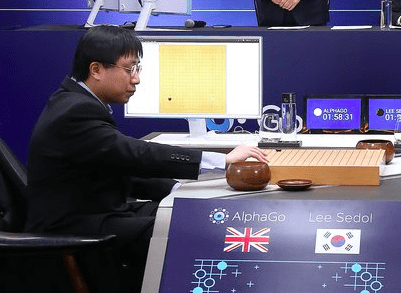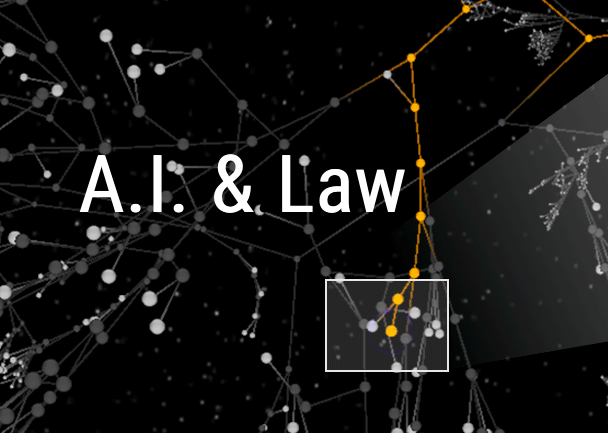
Artificial Lawyer recently caught up with Lex Rhim founder of South Korean legal AI system i-LIS and CEO of Intellicon Meta Lab (pictured above). i-LIS is the first fully developed legal AI application in the country and it’s great to see homegrown AI companies in the legal field sprouting up now all over the world.
Rhim kindly agreed to tell readers about the work he is doing in South Korea and what the latest version of his application will do, which at present focuses on legal research. Or, as Rhim puts it ‘i-LIS is a legal navigation system’.
What does i-LIS 7 do?
i-LIS was developed by Intellicon Meta Lab and is the first Intelligent Legal Information system in Korea. Basically, i-LIS is an expert system for legal professionals. The main modules are the semantic retrieval-engine and the legal reasoning-engine.
i-LIS has a multiple information retrieval agent that can find precedents (cases), law, networks between laws and cases all spontaneously when asked.
i-LIS is not a keyword matching-IR system, but an intelligent system that can understand complex legal questions. In addition, i-LIS has the legal map function that visually shows the semantic network structure of precedents and laws.
In brief, i-LIS is a legal navigation system with multiple-IR agents and a legal map, which helps users to intuitively get the information, just like with car-navigation systems. i-LIS continues to evolve through machine learning and today we have the latest legal reasoning system, ‘i-LIS 7’, which is the most advanced version of i-LIS
i-LIS-7 has shown its ability at COLIEE 2016, 2017 (Competition on Legal Information Extraction/Entailment). i-LIS-7 can understand legal questions, infer from the context of these questions, and then answers true or false. Also, it can give us the legal reason for its decision.

i-LIS uses natural language processing (NLP) and is hybridised with the technology of injecting and optimising legal knowledge. This allows it to process non-legal words and understand the questions in a sentence. This technique basically requires computational legal theory.
Ross Intelligence, nicknamed ‘the world’s first artificial intelligence lawyer’, uses the IBM Watson API, but we have developed our own technology.
What are the benefits to lawyers of using AI systems like this?
As mentioned, i-LIS is a kind of legal expert system and legal navigation system. Users can use i-LIS legal navigation to quickly find information. Moreover, users can obtain not only precedents, but also laws and the network between them. Therefore this saves time and enables higher capability and efficiency for legal professionals. Lawyers can concentrate more on drafting documents to provide a better legal service to their clients.
i-LIS also offers a lot of information to legal professionals, which permits them to extend their insights into legal cases.
How do you see the level of interest among lawyers in South Korea for this technology?

Korea is at an early stage for legal AI and legal tech industries. But, after the 2016 Alpha-Go event in Korea with Deepmind, Intellicon and i-LIS received public attention. Since then, lawyers’ interest in i-LIS has become very high and there is also a demand from the public to know more.
Intellicon is the first legal AI company in Korea and this is the first intelligent legal system here. Korea has no history of applying AI to the legal field and for this reason there is a high level of attention about i-LIS.
What is your inspiration for this project? Why did you decide to do this?
The current legal IR system provided by the Korean Supreme Court is based on simple keyword matching mechanism (boolean system). This method is time-consuming and inconvenient for users because it cannot deal with natural language.
Before becoming a lawyer, I had been studying brain science and AI for a long time. When I became a lawyer, I tried to find out the way to innovate the legal system by using mathematics and AI. With this idea and my experience, I started my own legal tech company, Intellicon Meta Lab in 2011.
I believe that simulating the human lawyer’s brain can enhance the ability of legal expert systems.
So, I analysed the legal knowledge structure and the behavior patterns of human lawyers. Human knowledge is connected by networks. By using a network we can deduce and reason systematically.
Focusing on this basic mechanism, I examined the legal network structure and modeled it formally and mathematically. Finally, based on this network, the main architecture of i-LIS was designed by combining AI (NLP and machine learning) and computational legal theory.
(And last question….) What are your future plans?

(1) Intelligent IR systems
(2) Legal reasoning systems
(3) Legal Q&A systems
Intellicon has already completed basic research on these systems. i-LIS has been established as the combination of the above technologies. By the proper combination of the three technologies, I have a plan to develop other systems in legal tech areas, as well as legal navigation sytems.
The main users will be attorneys, judges, prosecutors, the police and government officials. I am also preparing a system that can be used by businesses and private individuals.
For now, we are running i-LIS only for the Korean legal system. In the near future, I will develop i-LIS for foreign legal systems such as those of the US and Japan.
Thank you! And good luck with taking Korea’s first legal AI system to the next level and around the world.